Spelling practice Reading Worksheets for Ages 3-9 - Page 2
58 filtered results
-
From - To


Short Vowel Eggs Worksheet
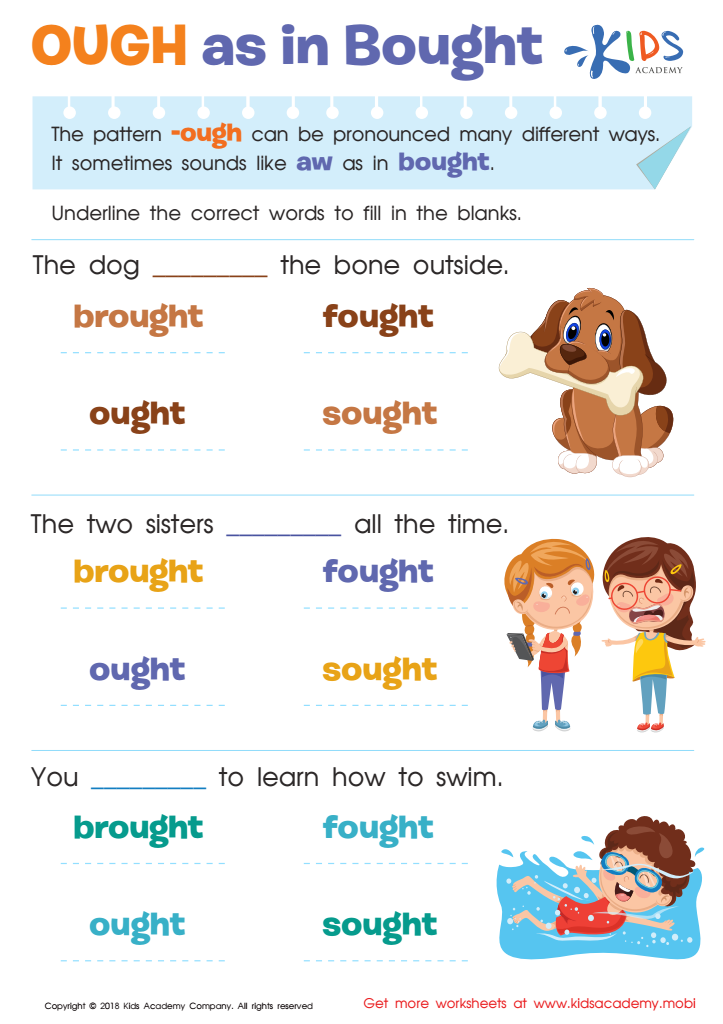

OUGH as in Bought Worksheet
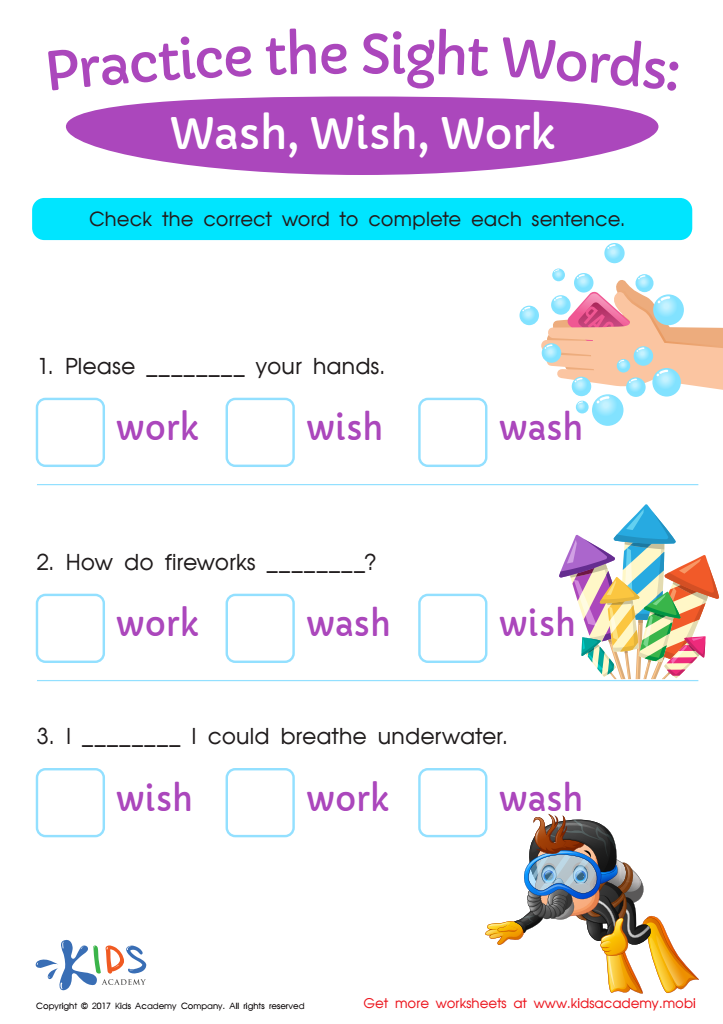

Wash, Wish, Work Sight Words Worksheet
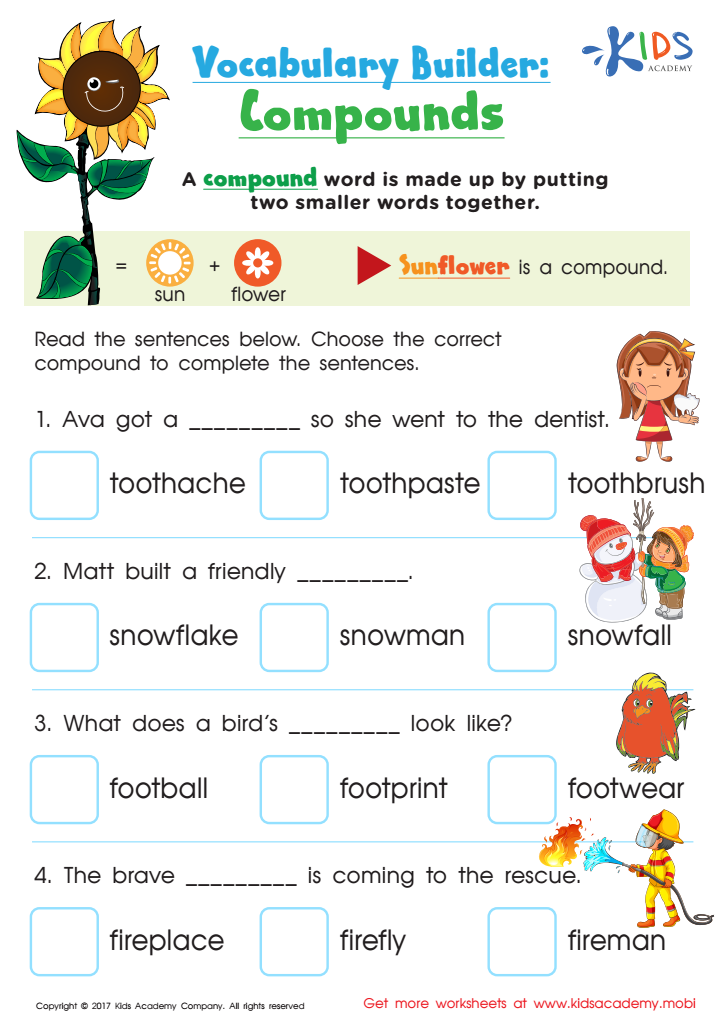

Compound Words Worksheet
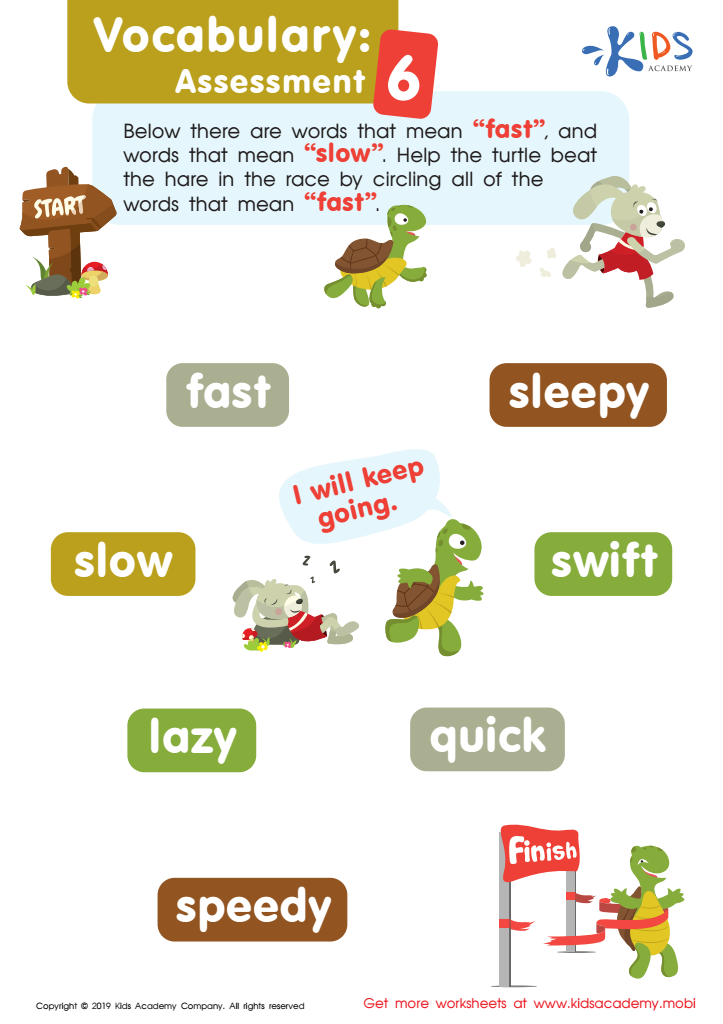

Vocabulary: Assessment 6 Worksheet
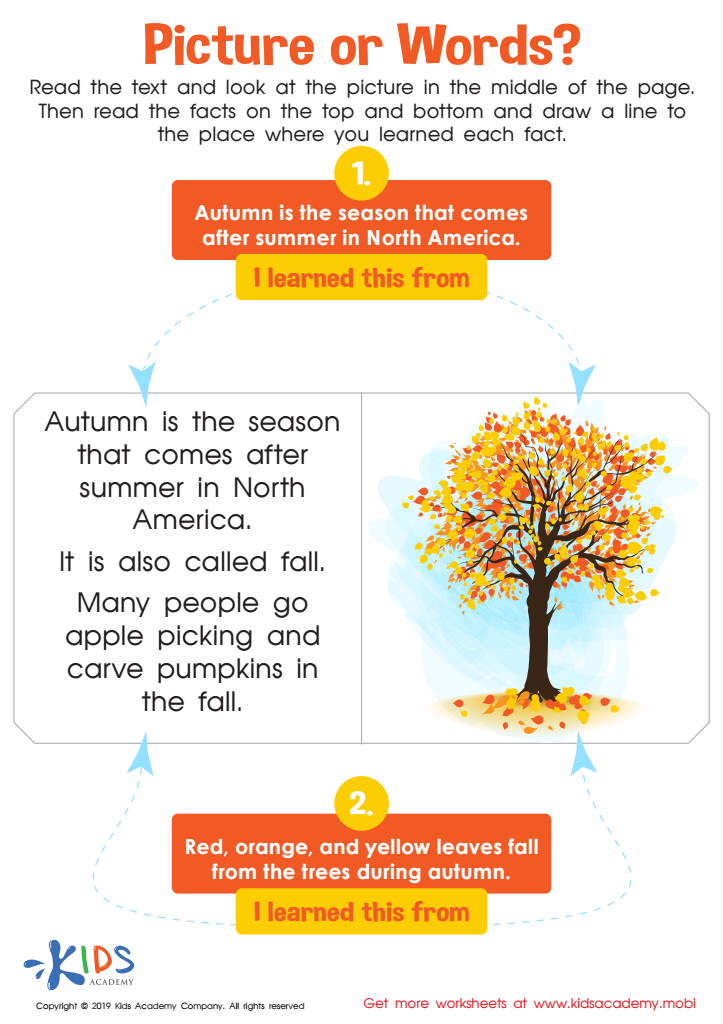

Picture Words Worksheet
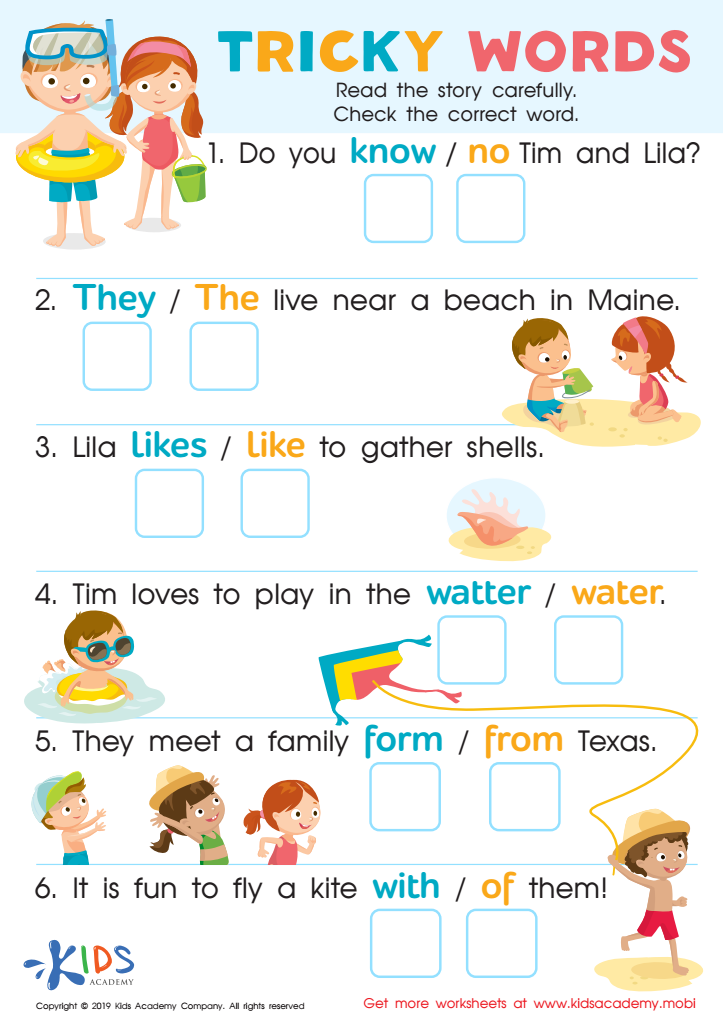

Tricky Words Worksheet
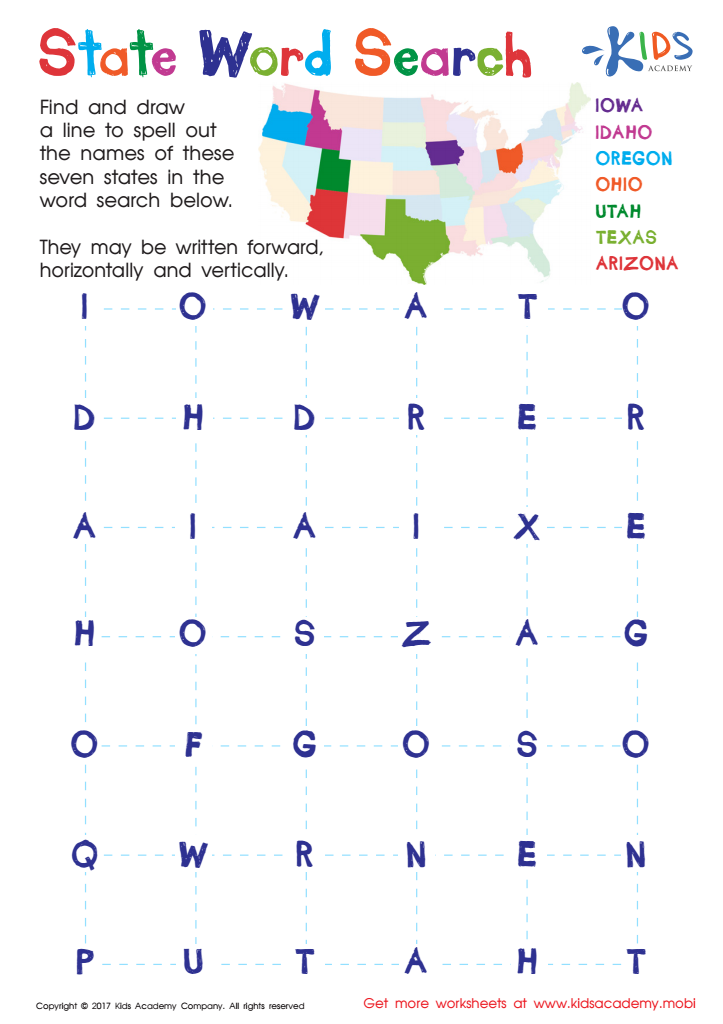

State Word Search Worksheet
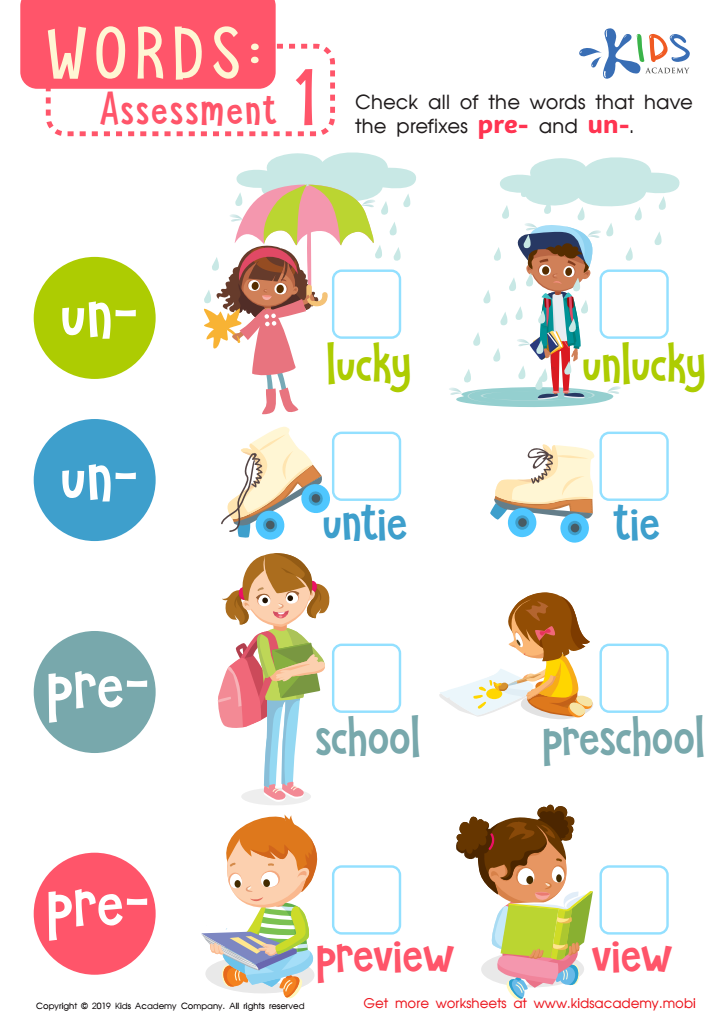

Words: Assessment 1 Worksheet
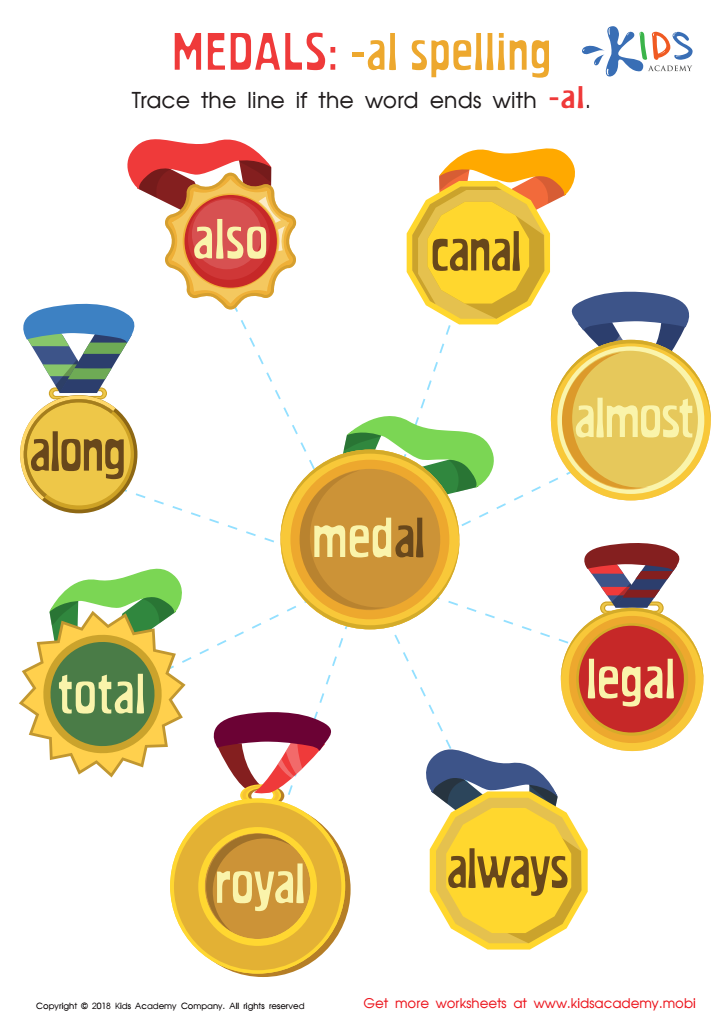

Medals: Al Spelling Worksheet
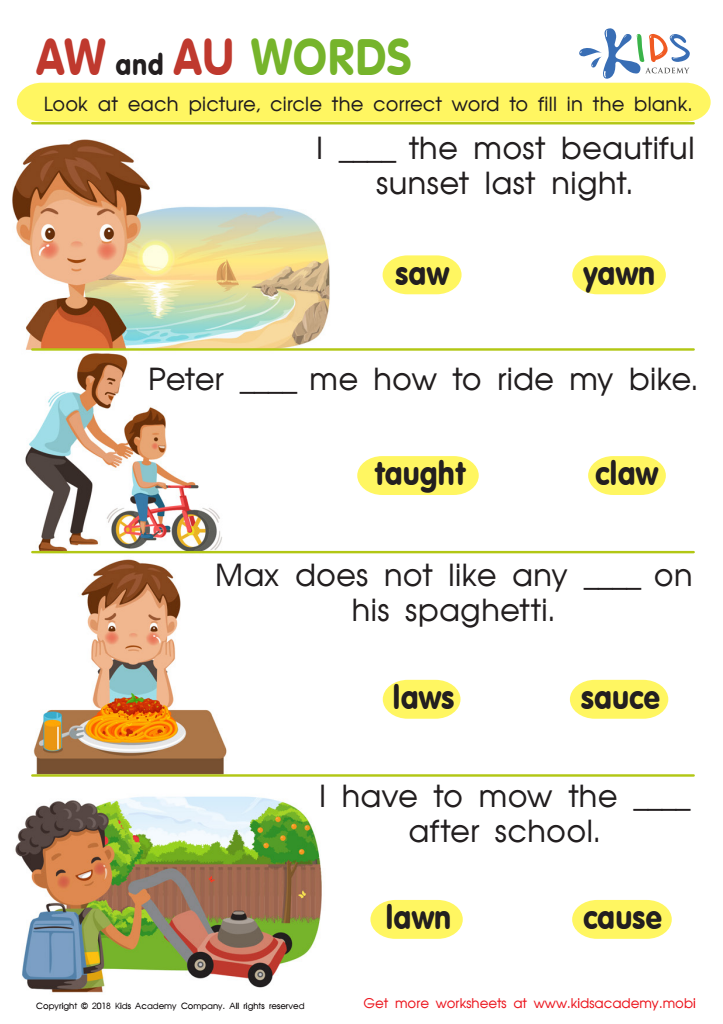

Reading: AW and AU Words Worksheet
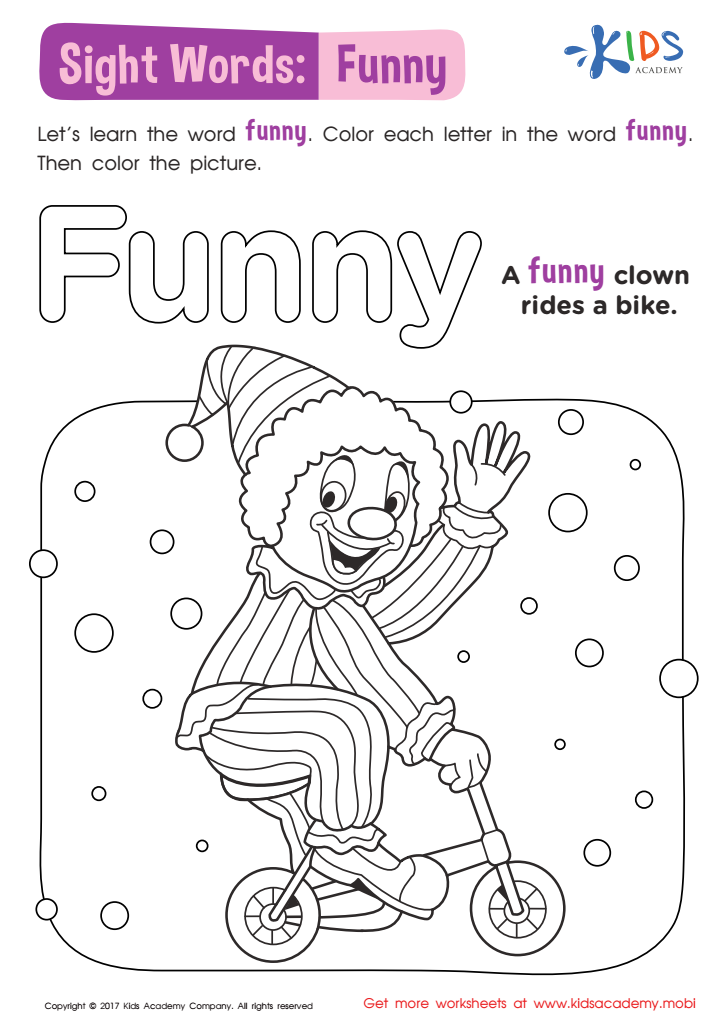

Funny Worksheet Sight Words Worksheet
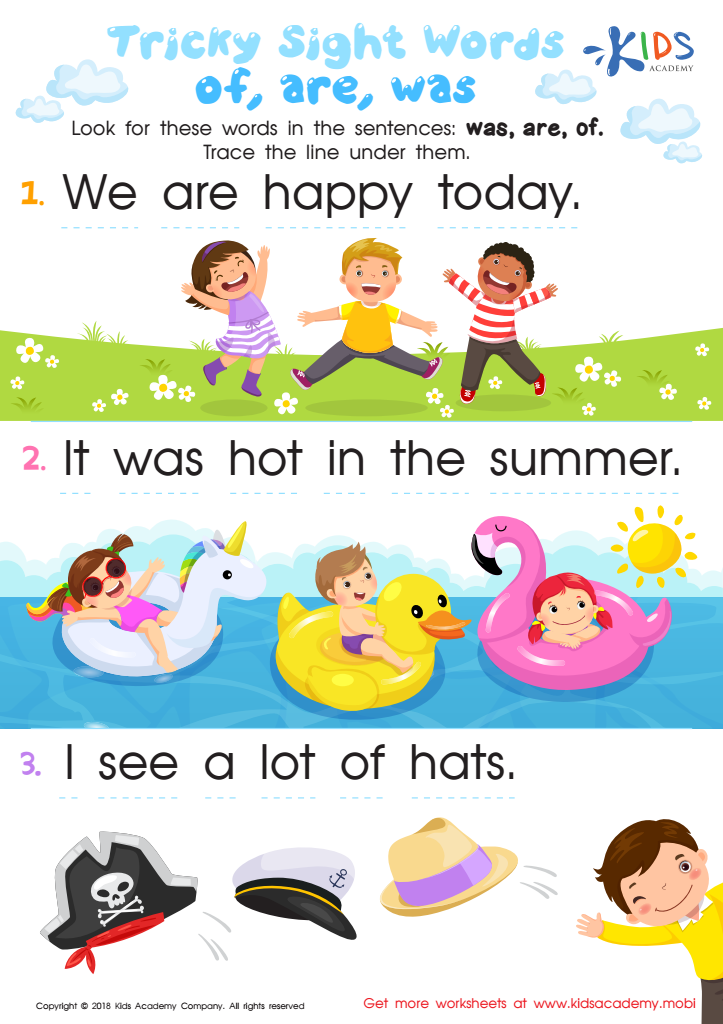

Tricky Sight Words Worksheet
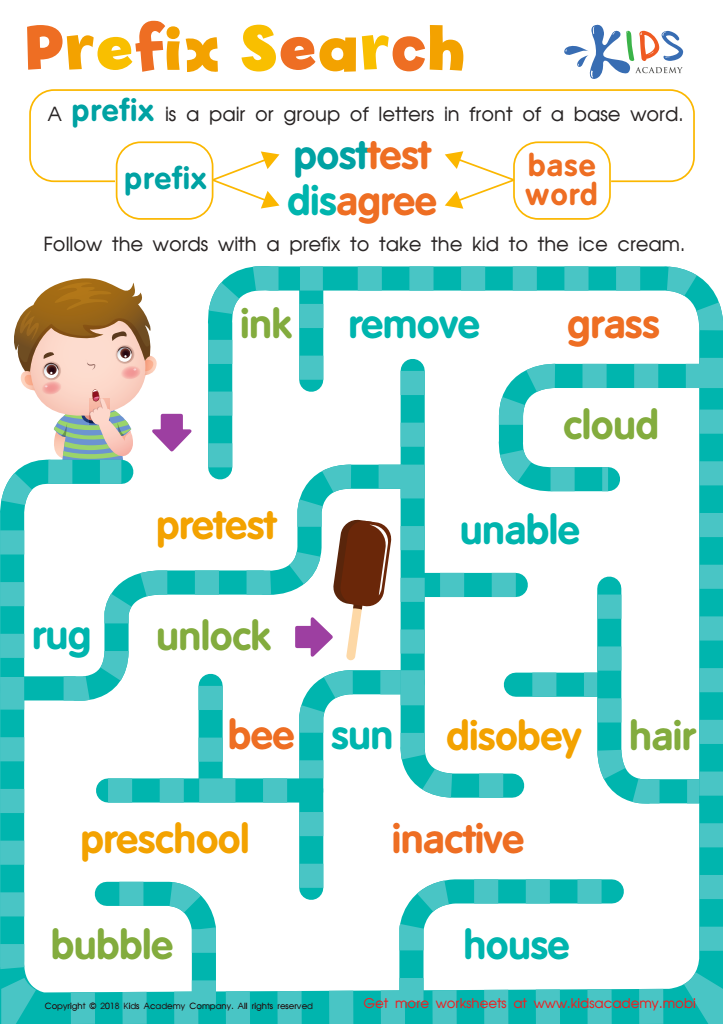

Reading: Prefix Search Worksheet
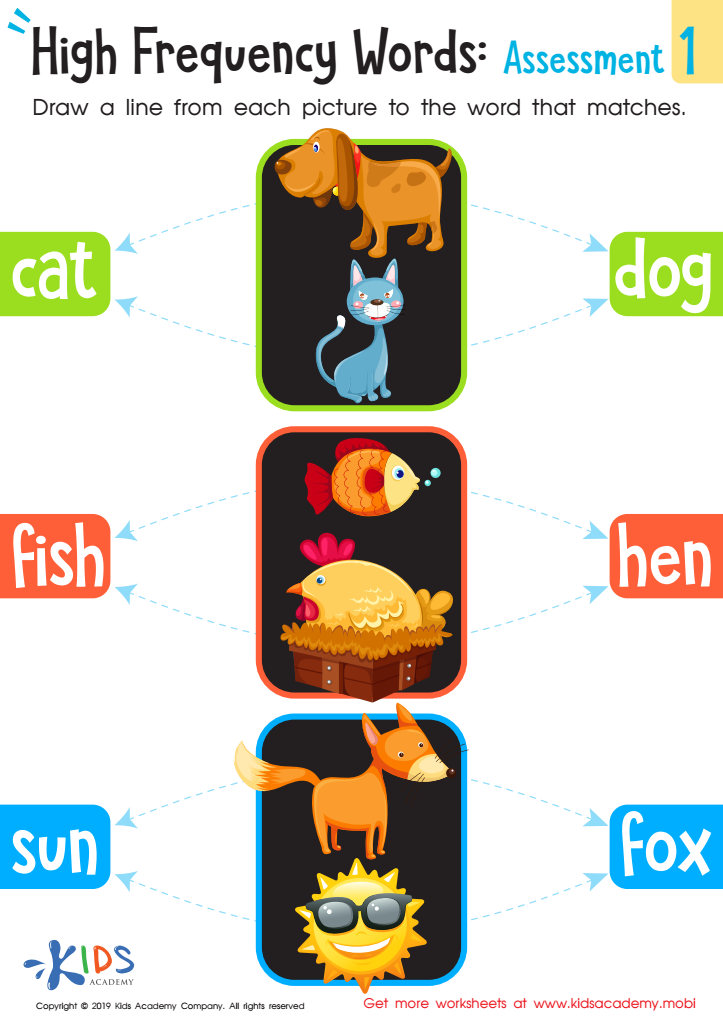

High Frequency Words: Assessment 1 Worksheet
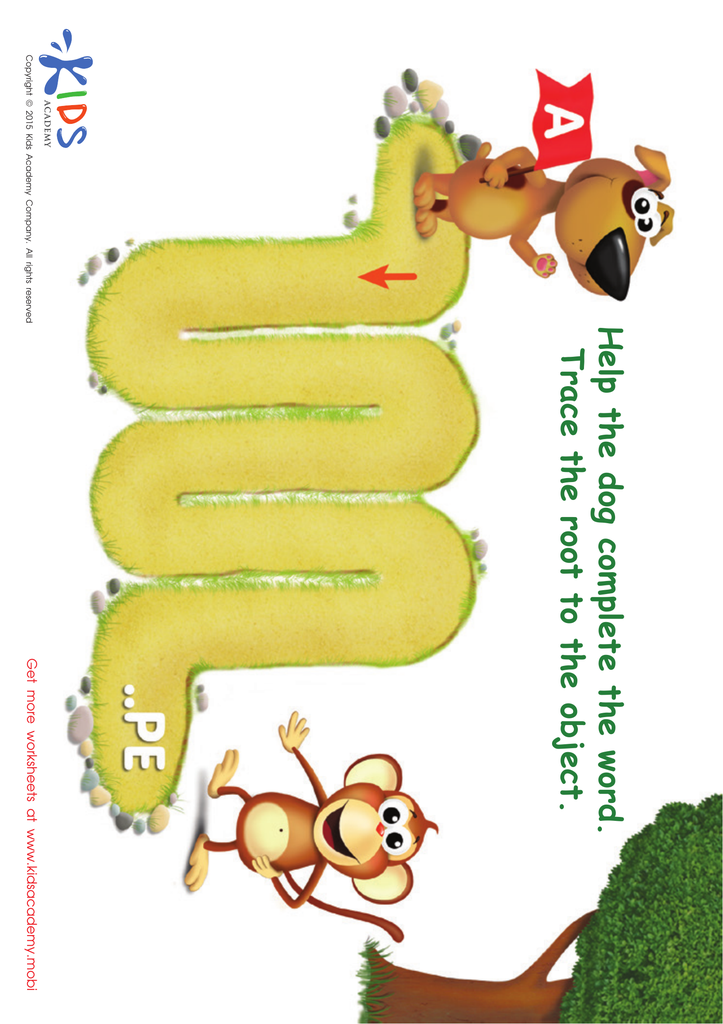

Long Vowel Sound A Worksheet Worksheet
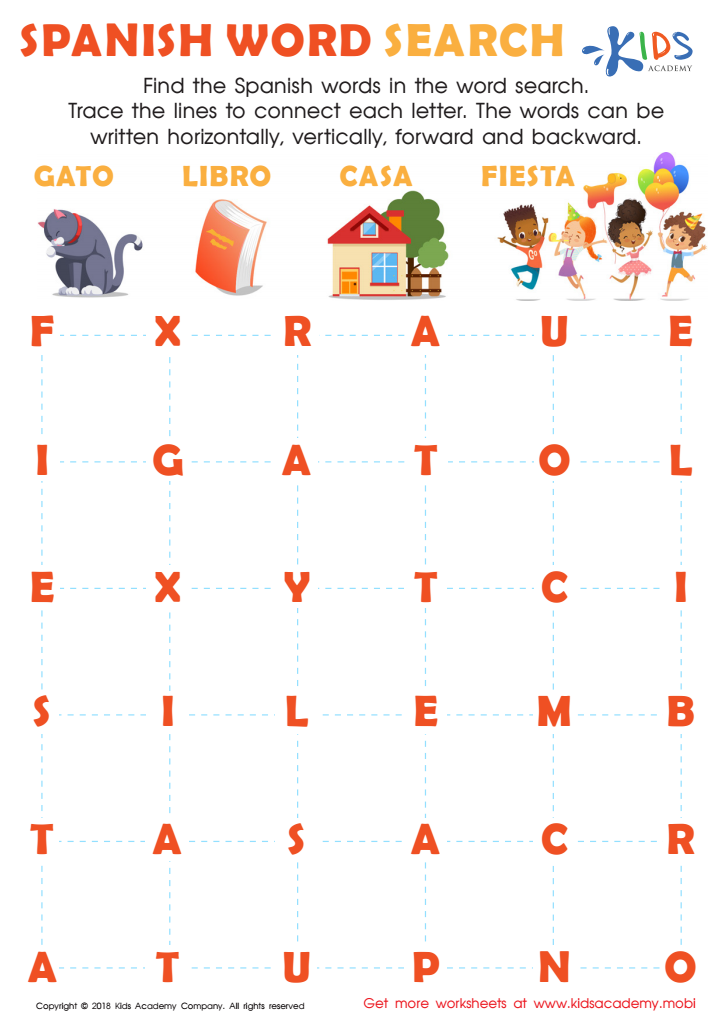

Spanish Word Search Worksheet
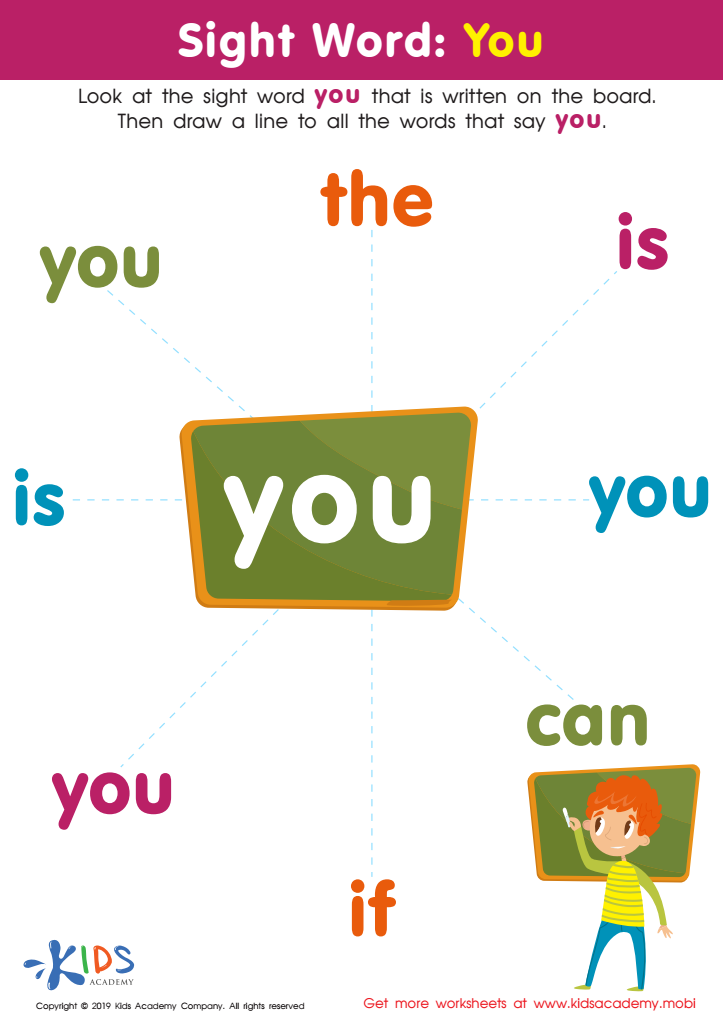

Sight Word You Worksheet
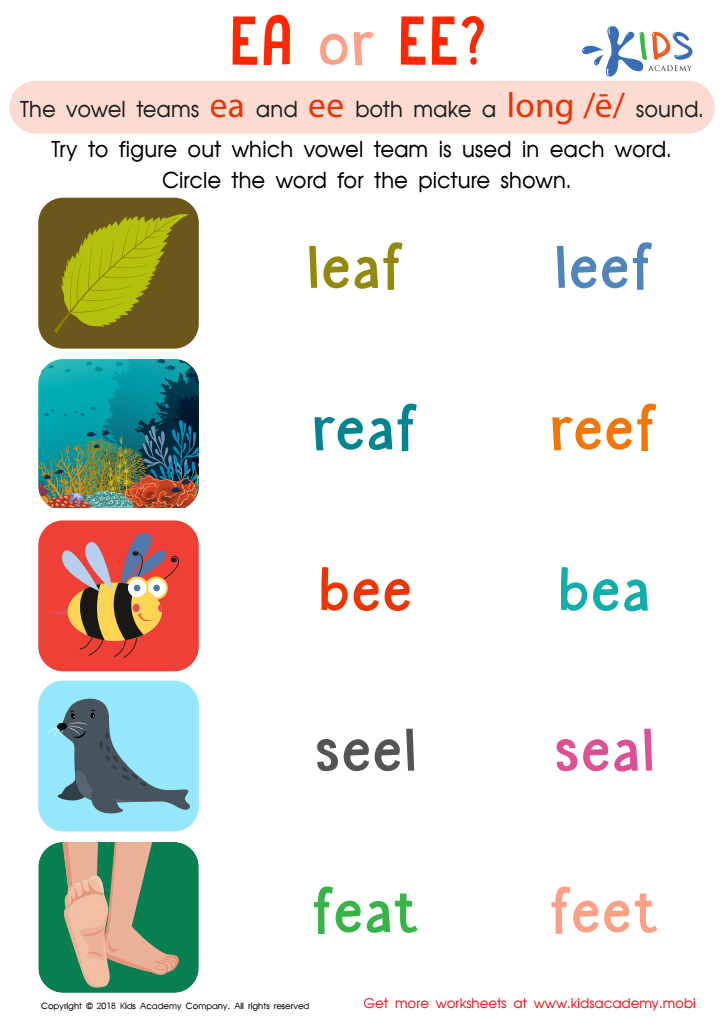

Reading: EA and EE Worksheet
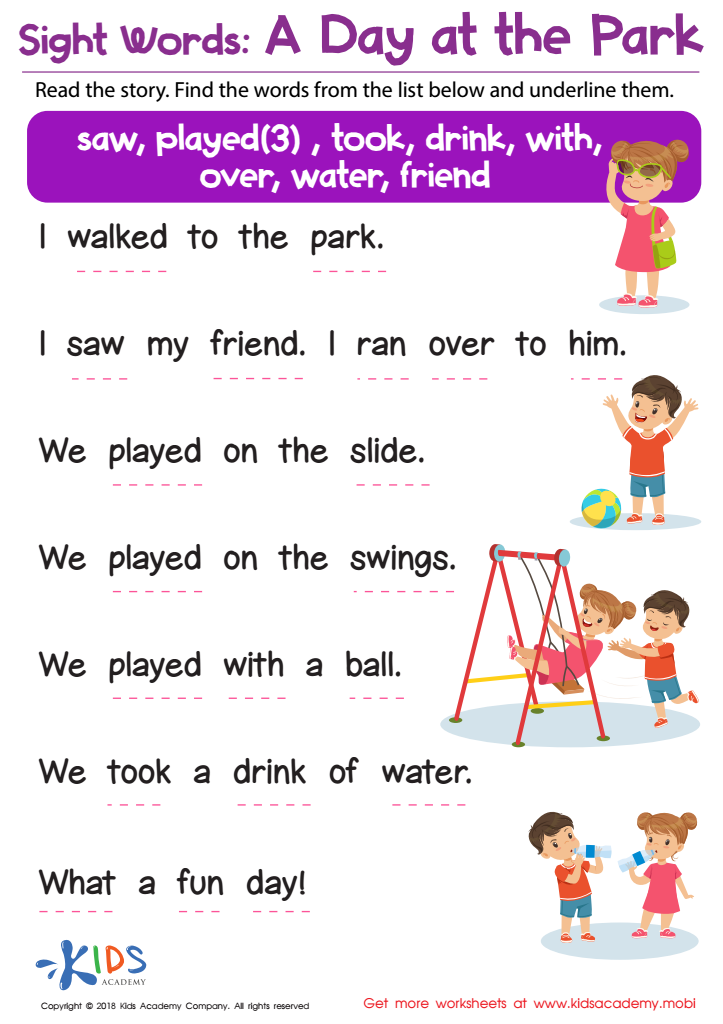

Sight Words: A Day at the Park Worksheet
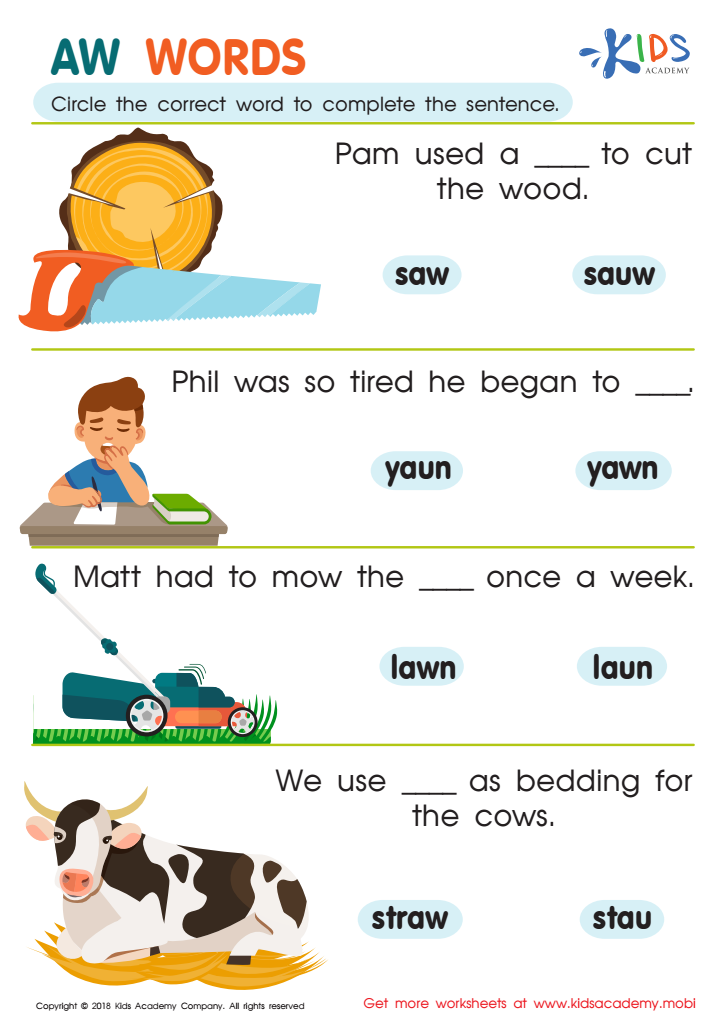

Reading: AW Words Worksheet
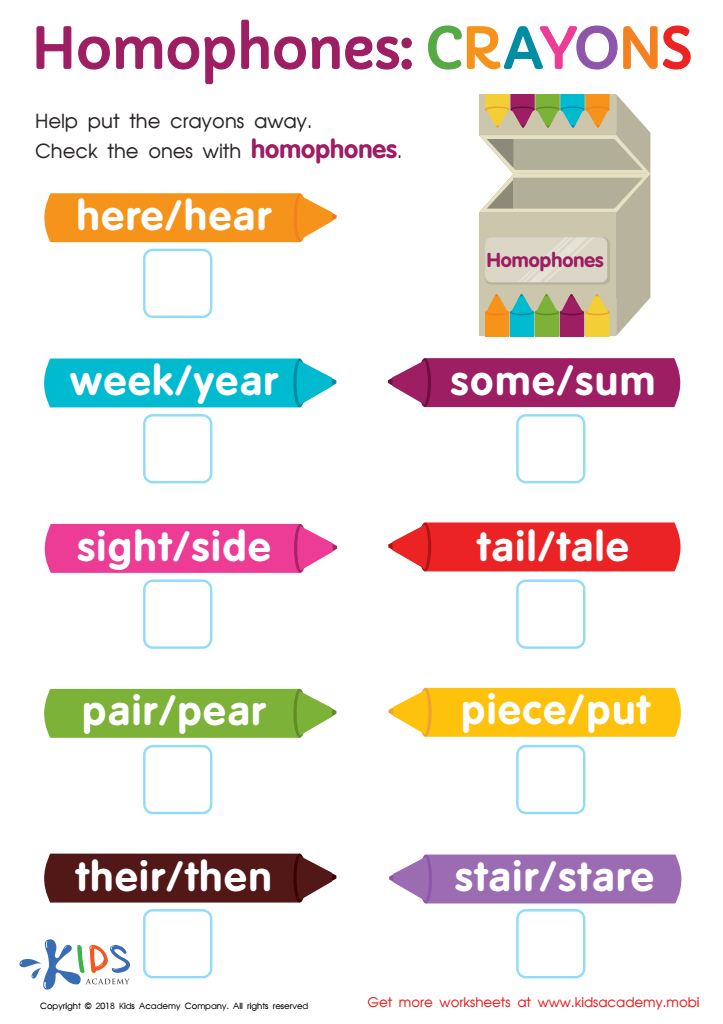

Homophones: Crayons Worksheet


Phonics and Word Recognition: Assessment 1 Worksheet
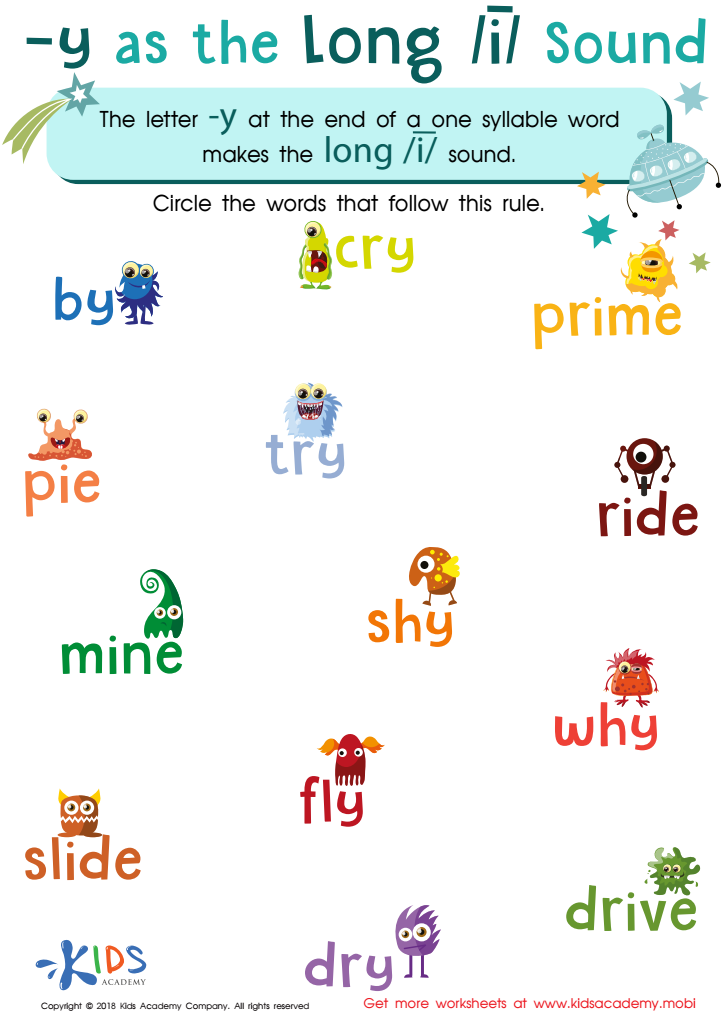

Reading: Y as Long I Worksheet
Parents and teachers play a crucial role in the development of children's literacy skills, and spelling practice through reading is a fundamental component of this journey for children aged 3-9. During these formative years, children are not only learning to read but also to write and communicate effectively. Engaging in spelling practice reinforces their understanding of word formation while boosting vocabulary acquisition.
Spelling practice intermingled with reading can enhance phonemic awareness—an essential skill that helps children understand the sounds in words. As children encounter new words during reading and work on spelling them, they develop critical thinking and problem-solving skills, fostering a deeper connection between literacy and cognitive development.
Moreover, consistent spelling practice nurtures confidence in young readers and writers. When they master spelling, children feel empowered to express their thoughts and ideas, leading to greater engagement in classroom discussions and activities.
Additionally, spelling and reading exercises can be fun and interactive; incorporating games and playful methods keeps the learning experience enjoyable. This early engagement with literacy sets the stage for lifelong love for reading and writing, equipping children with essential skills necessary for academic success and effective communication. Thus, spelling practice through reading is vital to holistic child development.
 Assign to My Students
Assign to My Students






















